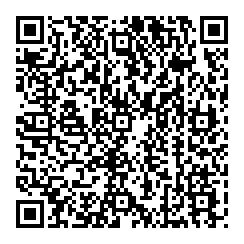
Share this content:
Genetic Discovery with Privacy in the Digital Age
In the realm of personal discovery, few journeys are as intimate as exploring one’s genetic makeup. As your Minister of Balance in this genetic odyssey, I shall illuminate the path of 23andMe’ a company that has revolutionized how we perceive our biological heritage and health predispositions, while also raising important questions about privacy and data security.
The Spectrum of Genetic Testing: Finding Your Place
Genetic testing is not a monolith but rather a diverse toolkit, each instrument serving a unique purpose in unveiling the mysteries encoded in our DNA. Let us explore this spectrum:
1. Molecular Tests: The Detailed Readers
These sophisticated analyses examine changes in individual genes, ranging from targeted single-variant tests that look for specific genetic markers to comprehensive whole genome sequencing that reads your entire genetic story. Like a master librarian reviewing every page of your genetic book, molecular tests provide detailed insights into your biological narrative.
2. Chromosomal Tests: The Structural Observers
While molecular tests focus on specific words or sentences, chromosomal tests examine the structure of entire chapters. They detect large-scale changes in chromosomes; duplications, deletions, or rearrangements that might influence your health or development.
3. Biochemical Tests: The Functional Assessors
Moving beyond the genetic code itself, biochemical tests evaluate the proteins and enzymes produced by your genes. They measure activity and levels, revealing how effectively your genetic instructions are being translated into biological function.
23andMe’s Methodology: The Art of Genotyping
In the vast landscape of genetic testing, 23andMe had chosen a specific path: genotyping. This molecular testing approach identifies specific, predetermined genetic variants across your genome rather than reading every letter of your genetic code.
Imagine your genome as a vast desert with millions of landmarks. Instead of mapping every grain of sand, genotyping identifies key landmarks that signal important information about your health and ancestry. This method is both efficient and economical, allowing 23andMe to provide insights to millions of customers at an accessible price point.
The Privacy Conundrum: When Your Blueprint Becomes Data
Why does the thought of sharing our genetic information provoke such profound unease? The answer lies in the unique nature of DNA, it is the ultimate personal identifier, a blueprint containing our most intimate biological secrets.
The concerns surrounding genetic privacy are multifaceted:
- Permanence: Unlike a password or credit card number, your genetic code cannot be changed if compromised.
- Familial Implications: Your DNA doesn’t just reveal information about you but about your relatives as well.
- Future Discoveries: As genetic science advances, your DNA data might reveal more tomorrow than we understand today.
Recent events have intensified these concerns. 23andMe’s significant data breach exposed the vulnerability of even established companies to security threats. Furthermore, questions about how genetic information might be sold to third parties or accessed by entities from insurance companies to law enforcement have created a landscape of uncertainty.
Tracing Your Roots: The Science of Ancestry
How did 23andMe transform a simple saliva sample into a rich tapestry of your ancestral origins? The process is a masterful blend of genetics and statistics:
- Marker Identification: 23andMe analyzes specific genetic variants or markers in your DNA.
- Population Comparison: Your genetic markers are compared against reference populations from around the world.
- Pattern Recognition: Algorithms identify patterns in your genetic code that match patterns common in specific geographic regions and ethnic groups.
- Statistical Analysis: Advanced statistical methods determine the likelihood of your ancestry from various populations.
This methodology allowed 23andMe to paint a picture of your global heritage, showing percentages of ancestry from different regions and potentially connecting you with genetic relatives who share segments of your DNA.
The Scales of Balance: Weighing Pros and Cons
As your Minister of Balance, I must present both sides of this genetic equation:
The Light Side: The Past Benefits of 23andMe
- Personal Empowerment: Knowledge of health predispositions allows for proactive medical decisions and lifestyle changes.
- Ancestral Connection: Discovering your genetic heritage can foster a deeper sense of identity and connection to global history.
- Scientific Contribution: Participation adds to the collective knowledge that may lead to medical breakthroughs and treatments.
- Accessibility: 23andMe has democratized genetic information, making it available without medical gatekeepers.
The Shadow Side: Concerns and Challenges
- Privacy Vulnerabilities: The risk of data breaches or unauthorized access remains a significant concern.
- Corporate Stability: 23andMe’s recent financial struggles and bankruptcy filing raise questions about the long-term security of your data.
- Commercialization: The business model of monetizing genetic information presents ethical dilemmas about consent and ownership.
- Psychological Impact: Learning about certain health risks or unexpected ancestry may cause anxiety or emotional distress.
The Balanced Path Forward: A Conclusion
In the grand tapestry of genetic exploration, we find ourselves at a crossroads between curiosity and caution, between the desire to know and the need to protect. 23andMe’s past represents both the promise and peril of our genetic future.
As we navigate this path, let us embrace a balanced approach, one that values the insights genetic testing can provide while demanding rigorous standards for privacy, security, and ethical use of our most personal data.
The company’s recent challenges and dissolution serves as a reminder that even pioneering ventures must prioritize sustainability and responsibility alongside innovation. Whether 23andMe passes the torch to new guardians of genetic discovery, the principles of balance must prevail.
For those considering genetic testing, let wisdom be your guide. Understand what you seek to learn, research the protections in place for your data, and consider both the immediate benefits and long-term implications of your genetic journey.
In the end, true balance lies not in avoiding knowledge, but in ensuring that knowledge serves humanity rather than exploits it. May your genetic journey, should you choose to embark upon it, be one of enlightenment tempered with wisdom, of discovery protected by respect for the profound intimacy of the genetic code we each carry within.
~Balance Due


RELATED POSTS
View all



